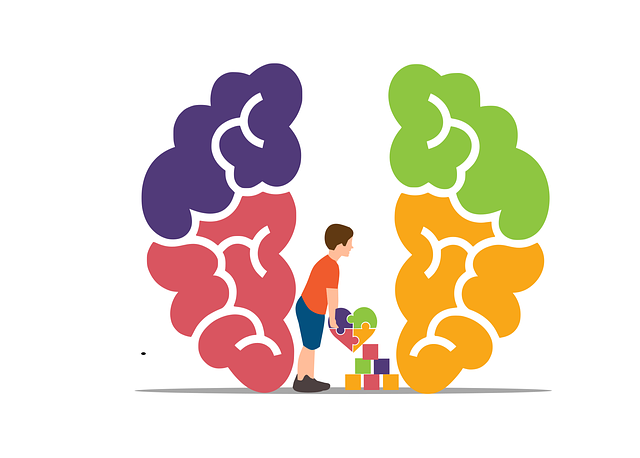Substance abuse is a complex issue prevalent in Denver communities, posing significant risks to health and relationships. Denver Cognitive Behavioral Therapy (CBT) offers an effective solution by targeting negative thought patterns, teaching emotional regulation, and promoting personal growth through empathy-driven sessions. CBT empowers individuals to adopt healthier coping mechanisms, challenge distorted thinking, and replace maladaptive behaviors, supporting long-term recovery. Lifestyle modifications, including exercise, balanced nutrition, and support networks, are key to lasting recovery, enhanced by access to quality treatments like CBT and crisis management strategies facilitated by local services.
In the pursuit of a healthier, safer life, understanding and mitigating the risks associated with substance abuse is paramount. This comprehensive guide explores effective risk reduction strategies, from cognitive behavioral therapy (Denver CBT) as a powerful tool for change, to lifestyle modifications and support systems that foster long-term recovery. Additionally, it delves into relapse prevention techniques and crisis management strategies, providing a holistic approach to overcoming substance abuse in Denver and beyond.
- Understanding Substance Abuse and Its Risks
- Cognitive Behavioral Therapy (CBT): A Powerful Tool for Risk Reduction
- Lifestyle Changes and Support Systems for Long-Term Recovery
- Relapse Prevention Strategies and Crisis Management
Understanding Substance Abuse and Its Risks

Substance abuse is a complex issue that involves the frequent or excessive use of substances like drugs and alcohol, leading to significant impairment in daily functioning. It’s a growing concern in Denver communities, impacting individuals across all demographics. Understanding the risks associated with substance abuse is the first step towards prevention and recovery. This includes recognizing how these substances can disrupt physical health, mental well-being, and social relationships. The long-term effects can be severe, encompassing various medical complications, psychological disorders, and legal troubles.
Denver Cognitive Behavioral Therapy (CBT) offers a proven approach to address substance abuse by focusing on identifying and changing negative thought patterns and behaviors. CBT helps individuals develop emotional regulation and mood management skills, crucial for maintaining sobriety. Additionally, empathy building strategies within therapy create a safe space for clients to explore their motivations, fears, and triggers without judgment, fostering personal growth and resilience.
Cognitive Behavioral Therapy (CBT): A Powerful Tool for Risk Reduction

Cognitive Behavioral Therapy (CBT) stands out as a potent tool in the arsenal of risk reduction strategies for substance abuse. By focusing on identifying and modifying negative thought patterns and behaviors, CBT empowers individuals to develop healthier coping mechanisms and make more positive choices. This form of Denver Cognitive Behavioral Therapy goes beyond mere symptom relief by fostering self-care practices and emotional regulation—crucial components for maintaining inner strength development and preventing relapse.
Through CBT, individuals learn to challenge distorted thinking, replace maladaptive behaviors with healthier alternatives, and cultivate a deeper understanding of their triggers. This holistic approach not only tackles the surface-level symptoms of substance abuse but also addresses the underlying causes, enabling clients to build resilience against future risks. As a result, CBT plays a pivotal role in helping individuals achieve long-term recovery and lead fulfilling lives free from the shackles of addiction.
Lifestyle Changes and Support Systems for Long-Term Recovery

In the journey towards long-term recovery from substance abuse, lifestyle changes play a pivotal role. This involves adopting healthier habits such as regular exercise, balanced nutrition, and sufficient sleep, which not only improve physical health but also strengthen the mind. Denver Cognitive Behavioral Therapy (CBT) is particularly effective in this regard, helping individuals identify and modify negative thought patterns that contribute to substance abuse. CBT encourages clients to develop coping strategies, enhance problem-solving skills, and build self-esteem improvement, all of which are essential for maintaining sobriety.
A robust support system is another cornerstone of successful recovery. Connecting with like-minded individuals in support groups, seeking mentorship from peers who have achieved long-term recovery, and involving family members can provide a network of encouragement and accountability. Moreover, Mental Health Policy Analysis and Advocacy plays a crucial role in fostering environments that promote recovery. By advocating for policies that prioritize access to quality mental health services, including Denver CBT therapy and other evidence-based treatments, individuals in recovery can find greater support and sustainability in their journey. Mind Over Matter principles—the idea that thoughts and beliefs shape reality—are integral to this process, encouraging individuals to embrace a positive mindset as they navigate the challenges of maintaining sobriety.
Relapse Prevention Strategies and Crisis Management

Relapse prevention strategies are a crucial component of effective substance abuse treatment. Denver Cognitive Behavioral Therapy (CBT) offers powerful tools to empower individuals in managing their recovery journey. CBT helps clients identify and challenge negative thought patterns, enabling them to develop healthier coping mechanisms when faced with triggers or stressful situations. Through this therapy, individuals learn to replace self-destructive behaviors with positive alternatives, thereby reducing the risk of relapse.
Crisis management is another vital aspect, focusing on providing immediate support during challenging times. This includes teaching clients strategies for de-escalation and stress reduction, as well as fostering strong support networks within their communities. Denver’s Trauma Support Services play a significant role here, offering specialized care for individuals with co-occurring trauma and substance use disorders. Additionally, Community Outreach Program Implementation can help bridge the gap between treatment and real-world challenges, ensuring a more holistic approach to crisis management. Encouraging self-care practices is also essential; promoting healthy habits like regular exercise, adequate sleep, and mindfulness techniques can equip individuals with tools to navigate crises independently.
Substance abuse poses significant risks, but with comprehensive strategies, recovery is achievable. By understanding the nature of substance abuse and its associated dangers, individuals can take proactive steps towards change. Cognitive Behavioral Therapy (CBT) in Denver offers an effective approach to modifying thought patterns and behaviors, while lifestyle adjustments and supportive communities facilitate long-term recovery. Additionally, relapse prevention techniques and crisis management skills empower those in recovery to maintain their progress. Integrating these strategies creates a robust framework for risk reduction, enabling individuals to reclaim their lives free from substance abuse.














